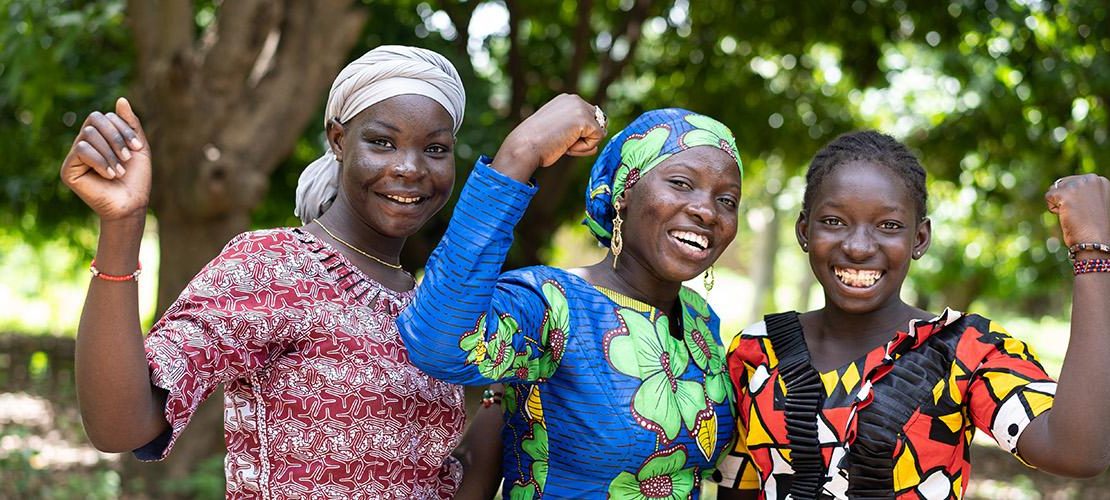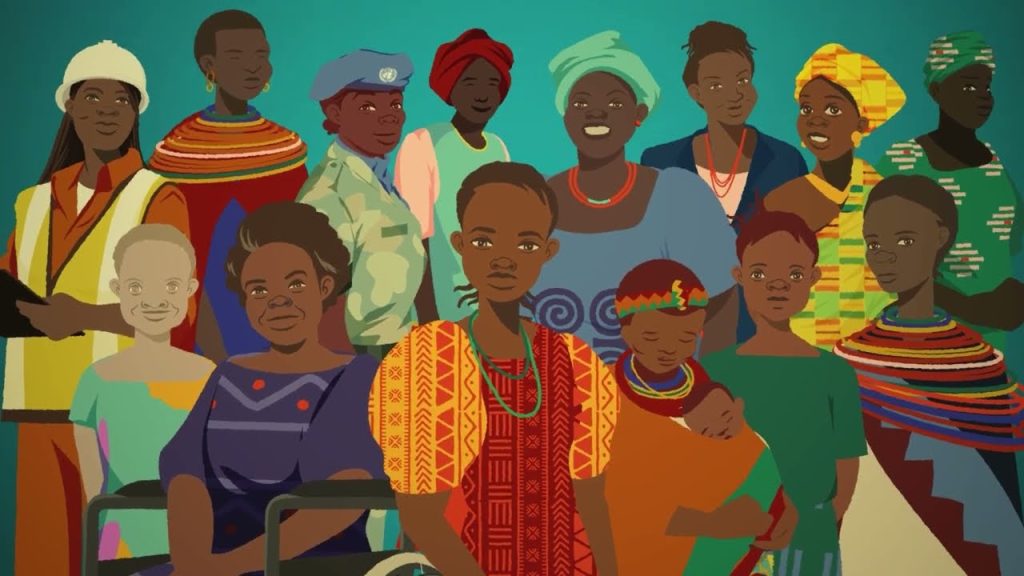Overcoming Barriers: Challenges Faced by Women and Girls of African Descent Today
- July 25, 2025
- Posted by: Hub Admin
- Categories: Article, Gender rights and inclusion, Human Rights, Public Interest

By Ihuoma Janefrancis Anyanwu
Introduction
The woman and girl child of African descent are endowed with strength, resilience, and untapped potential, yet they remain among the most marginalised groups globally. This can be traced to the foundations and traditions of African society, which create a lot of obstacles to the socialisation of women in a modern society. Many women are deprived of the most essential things: a decent education, access to all necessary health services, good treatment and social status, the ability to independently manage their lives, and participation in government. However, African states have adopted several Acts that enshrine fundamental rights and freedoms for women at the legislative level, such as the Adoption of the CEDAW — Convention for the Elimination of Discrimination against Women in 1979, which was the main international instrument on the rights of women. Also, on July 11, 2003, the world took a considerable step in protecting women’s rights in Africa. The Protocol to the African Charter on Human and Peoples’ Rights on the Rights of Women in Africa was signed among member countries of the African Union. However, several countries have made reservations on certain Articles in the Protocol upon ratification of the Maputo Protocol on the ground that certain Articles are incompatible with their national law, traditions, religion or culture.

Challenges Faced by Women and Girls of African Descent
Black women face challenges in different spheres of their lives, which include:
- Gender Discrimination: The women and girls of African descent experience the compounded effects of racism and gender disparities, leading to unique biases and harmful stereotypes that undermine their credibility and lead to microaggressions. The discrimination touches all spheres, and even familyhood is not a safe place for a young lady in Africa. As most African cultures deny women from family property inheritance. A woman in Africa has three choices: to marry a man during her puberty, in her adolescence or in her youth; the latter is considered to be the rarest case as choices are made by the father or brothers.
- Economic Marginalisation: There’s a significant wage and wealth gap compared to other groups, higher unemployment rates, and limited access to stable, well-paying jobs. This could be traced to the enduring legacy of colonialism, which includes a capitalistic system that marginalises Black Africans, with Black women often relegated to care roles and excluded from the formal labour market.
- Health Inequities and Inaccessibility: Black women face alarmingly high rates of maternal mortality and morbidity due to systemic racism within healthcare. These high rates of maternal mortality and morbidity on the continent can be attributed to proximal determinants such as haemorrhage, sepsis and unsafe abortion, as well as more distal determinants related to gender inequality. This includes a lack of autonomy of women to make informed decisions about whether to become pregnant in the first place or to seek medical care, and a lack of access to contraception.[1] Additionally, the higher death and life-debilitating injuries faced by adolescent girls are related to biological factors, but also directly linked to other problems, such as a lack of access to comprehensive sexuality education and information, a lack of access to sexual and reproductive health services, and harmful practices such as child and forced marriages.
- Limited Access to Quality Education: Africa also has the highest rate of out-of-school children and adolescents globally. Unfortunately, girls remain more likely to be permanently excluded from education and are at a higher risk of being left behind. The United Nations and African Union launch a report entitled “Women’s rights in Africa”, which points out that the educational system in Africa barely exists, in most cases leaving an uneducated girl to nothing but early pregnancy.[2] Yet where the girl manages to finally take her seat in school, things do not get better, as only a small portion will reach and far fewer will complete secondary school. Therefore, increasing the rate of poverty, violence, early pregnancy or a mere absence of a school in a given region.[3]
- Limited Political Participation: They are often underrepresented in leadership and decision-making roles across political, corporate, and community sectors due to various factors, including a lack of social capital, poverty, and cultural biases against women in leadership.
- Gender-Based Violence (GBV): Women and girls of African descent are disproportionately vulnerable to various forms of GBV, including intimate partner violence and sexual exploitation, often with limited access to justice
- Cultural and Societal Norms: Traditional gender roles and issues like hair discrimination can suppress their authentic selves and limit opportunities.
Addressing these issues requires comprehensive strategies that tackle systemic racism and sexism, promote economic empowerment, ensure equitable access to education and healthcare, foster political inclusion, and actively combat all forms of gender-based violence.
Pathways to Overcoming Challenges
There’s need to create a favorable climate for establishing equality, this is by ensuring women’s access to full development this can be done by improving conditions for the economic activity of women; combating the remnants of tradition with the help of innovative technologies; Improving Health Access and Outcomes Targeting maternal health disparities, expanding healthcare access for Black women and girls, and prioritizing reproductive justice; consolidation of the status of a woman as a full member of society; creation and strengthening existing legal frameworks and enforcement of gender-responsive laws to protect rights, address Gender-Based Violence while promoting gender equality at the national and regional levels. Abolishment of cultures and traditions that are excluded from inheritance. Lastly, empowering Black women in leadership and representative capacities at all levels will create more equitable opportunities in political, civic, and professional spheres.
Conclusion
Women and girls of African descent face a myriad of challenges anchored in systemic discrimination, economic hurdles, and traditional and cultural norms that have limited them socially, politically, and economically. Therefore, addressing these barriers requires coordinated action at all levels to unlock the potential and rights of millions of women and girls globally.
[1] M. A. Potasse, S.Y aya, BMC Understanding perceived access Public Health, barriers to contraception through an African feminist lens: a qualitative study in Uganda (2021)
[2] Samake А. Good Practices in Legislation on “Harmful Practices” against Women in Africa XIII conference of Africanists (2014)
[3] S. Awa, International Legal Protection of Women’s Rights in Africa, RUDN University
